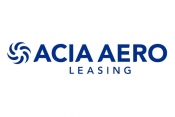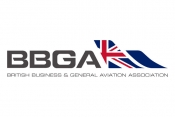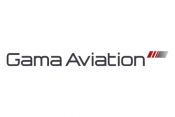Awareness is the core message at this year's AfBAA Regional Symposium.
Tuesday 27th October 2015
The third AfBAA Regional Symposium held in Addis Ababa, 24th and 25th September proved to be the liveliest yet. The event, which welcomed around 100 dignitaries, delegates and speakers, saw two days of dynamic debate and discussions produce a vast selection of new ideas and suggestions to develop awareness of Business Aviation in Africa.
Mr. David Kajange, Head of Transport and Tourism delivered a keynote speech on behalf of the African Union's Infrastructure and Energy Department. Mr. Kajange acknowledged the growth of air transport adding that the African Union is actively pursuing open sky initiatives to support a more cohesive aviation network that will establish a single air transport market by 2017. Mr Kajange acknowledged that whilst Business Aviation has not received as much attention as commercial aviation from the AU it is aware of its importance as a growth factor for the continent. In summing up Mr Kajange said, "it would be necessary for AfBAA to pursue a vigorous advocacy campaign to highlight the benefits of Business Aviation to corporate managers, policy-makers and regulators in Africa."
The Ethiopian Minister of Transport, HE. Minister Workneh Gebeyehu, echoed some of Mr Kajange's points, but at a national level explaining how Ethiopian Airlines has become one of Africa's most successful carriers, aided by governmental support. The government is assisting new aviation entrants in Ethiopia and is committed to making infrastructure improvements. This includes the development of 20 international level airports within the next five years.
AfBAA's Founding Chairman, Tarek Ragheb welcomed the positive approaches from the governmental dignitaries confirming that the theme of education and awareness continues to thread through AfBAA's activity. He stressed that the education of governments was as important as the education of industry stakeholders. Ragheb also announced the launch of the ABAS, (African Business Aviation Show), an annual show dedicated to Business Aviation which will run in parallel with Aviation Africa, the recently launched commercial aviation exhibition and conference, acknowledging that many similar issues affect both sectors.
Familiar topics featured across a series of sessions. The operator panel noted that a real lack of understanding still exists across the network of African CAAs, and even regulators and authorities often misunderstand business aviation. The collective lack of awareness is an issue the panel said must be addressed. Knowledge sharing should be encouraged for the future. Operators are still stymied by familiar issues with customs departments often holding up parts, heavy tax levies being applied to private aircraft, and a lack of contingency stock available for unpredicted maintenance requirements. Jonathan Deutsch of maintenance program provider JSSI suggested that OEMs need to be made more aware of this and encouraged to build contingency stocks in these areas. JSSI are also advocating for greater education around MRO in Africa.
The safety and training panel ignited much debate about audits. Laurie Moore of Litson & Associates recommended that a standard international audit system could work best and help all stakeholders. The current system, which sees oil companies, auditors, regulatory bodies, all requiring different levels, makes the process expensive in terms of time, investment and operations. There was a suggestion that the CAAs State Safety Programmes were often way behind and that operators should lead the way. However it was acknowledged that African safety standards are improving.
New themes for this year included sessions on Medevac, with Volker Lemke of one of the largest international air ambulance companies FAI, calling for AfBAA to create a brief that can be shared with CAAs that outlines what medevac means. Awareness raising could encourage CAAs to define specific parameters to deal with the specific issues associated with medevac flights. Whilst the "Oil at $40 a Barrel" panel debated price fluctuations general consensus agreed that infrastructure, delivery, storage, location, quality control costs and government levies all affect the price. A call was made for AfBAA to lead the way in developing a clearer, comprehensive and transparent fuel release system for Business Aviation as cash is not welcome and bank movement of moneys can be unpredictable. A much anticipated session introduced the topic of Unmanned Aerial Vehicles, UAVs. Admitting the term "drone" has negative connotations Katy Glynn of Trident Securities showcased the positive uses for UAVs, arguing that really they should be termed "flying computers" as their capacity for data collection is vast. Supporting one of AfBAA's key themes she said business' needs data and UAVs are the perfect source for cost effective data collection. She called for AfBAA to welcome UAV operators as members.
Security, also a new theme, featured as Trident Group's CEO Thomas Rothrauff discussed how functional security control needs to be an expansive and inclusive operation that addresses aviation security from the perimeter fence to the top of the air traffic control tower. Assessing threats is important, but having the capability to deal with them is even more so. The tracking technologies panel noted that in a country with as much hostile terrain as Africa undoubtedly tracking is a hot topic. The argument to include flight-tracking equipment in aircraft specification is strong.
The symposium finished with an SMS workshop. Presented by Laurie Moore of Litson & Associates, and Michael Grüninger of GCS, it worked with twenty-five delegates through a three-hour session covering the basics of Safety Management System implementation that explained its importance as a valuable investment for any business.
The symposium was lively and full of debate with fruitful discussions and expert based knowledge sharing. Chairman Alan Peaford commented: "it's very clear that AfBAA is on the move." Action is being taken; new topics are being brought to the fore and African Business Aviation remains on an upward trajectory in terms of development, understanding and expansion. Summing up Tarek Ragheb said the core message to take from the event was the ongoing need for awareness at all levels about the value of Business Aviation. "Making the CAAs, stakeholders, regulators, governments and media aware of the benefits of supporting and developing Business Aviation is essential if they are to understand its important contribution to the growth of business, nations and the continent."
Rady Fahmy CEO of AfBAA stated, "we are extremely pleased with this year's event, it raised some extremely interesting new topics and has provided guidelines for AfBAA activity going forward." He finished by thanking participants and sponsors CAE, FAI, JSSI, Trident Security and Universal Weather and Aviation Inc.
Latest News

Wednesday 19th February 2025
ACIA Aero Leasing places ATR72-500 Bulk Freighter with Canada’s KF Aerospace

Wednesday 19th February 2025
Serious consequences for charters operating without a valid UK Foreign Carrier Permit, warns BBGA






Get Social
Twitter Linked in Facebook Instagram